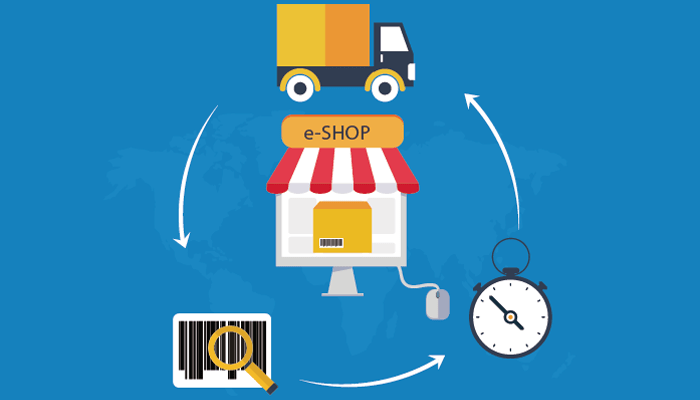Own an online store or sell on one of the multi-seller marketplaces? What is the biggest challenge you face every day? What is the one segment that can greatly increase your operational efficiency? For 9 out of 10 online business owners, the biggest pain point is finding a reliable logistics partner for eCommerce. Although the industry has evolved very rapidly in the last five years, delivering products timely still remains the main challenge.
Customer is the king and keeping them happy is the key to success for any business. This is especially true for the extremely competitive e-commerce market. Despite having the best products and most competitive pricing, a website can easily lose customers if the product delivery is not up to par.
You can provide the best shopping experience to your customers on your web store but once the product leaves your warehouse, things are no longer in your control. Your reputation is now totally dependent on the services of the e-commerce logistics companies you have partnered with.
Choosing the right logistics partner for ecommerce is crucial for any business. It can be the single most important factor in deciding the success or failure of your business. If you choose an unreliable shipping partner for ecommerce, your customers get a bad experience and might move to your competitors. Go for too-pricey shipping services and it eats away your profit margins.
So, it is advisable that you should work with reliable shipment service providers like treefroglogistics.com, as they provide a unique technology-based solution to all logistical problems.
1. Do They Provide End-to-End Delivery?
Check out your shipping provider’s end-to-end delivery channels. A reliable logistical partner for ecommerce should be one that can ensure efficient and timely transportation of goods across the length and breadth of the country. Usually, the courier companies have tie-ups with local partners to manage delivery to the remotest areas. Moving goods quickly and safely is of prime importance. Check the first-mile, in transit, and last-mile delivery of your partner before finalizing the e-commerce logistics companies for your business.
2. Do They Offer Insurance?
On average, 7-10% of orders are lost in transit and if the item is not insured, the merchant has to bear the cost of the lost product. In some other cases, deliveries get misplaced, and the delivery might take weeks or even months. This usually happens due to errors in labeling, wrong or missing PIN codes, infrastructural issues, or some other factors that are beyond the control of the courier agency.
Given the scope of losses, it becomes imperative that every seller thoroughly checks the insurance policy of their e-commerce delivery service. Never partner with any company without understanding its insurance policies, how your shipments are covered, how to dispute, how to file a claim and how to calculate the value of your parcel for insuring it.
3. Are they cost-effective?
Getting a competitive rate from your shipping partner depends on your order value and the relationship with the provider company. Also, you need to pay a good amount as an upfront security deposit. So, instead of going with too many tie-ups, it is always better to choose a few reliable logistics partner for ecommerce and build a good relationship with them.
4. Are They Suitable For Your Business Model and Industry?
The shipping needs of various industry verticals can be different from each other, like chalk and cheese. For example, if you are running a cake and flower shop, you need intra-city quick deliveries. Whereas, an online electronics goods shop needs nationwide delivery coverage. So depending on the e-commerce logistics case study of your business, you need shipping partners who specialize in your industry category.
5. Are You Getting Broad Coverage?
Not every courier company provides pan-India delivery coverage. If you go with a shipping agency that has limited coverage, you can lose many customers who are beyond the serviceable area. The alternative is to tie up with various agencies, which can lead to hefty upfront security payments. You can cut costs by reaching out to logistics partner for ecommerce who offer deliveries to areas where you have maximum customer density.
Source: LinkedIn, Quora, StoreHippo




